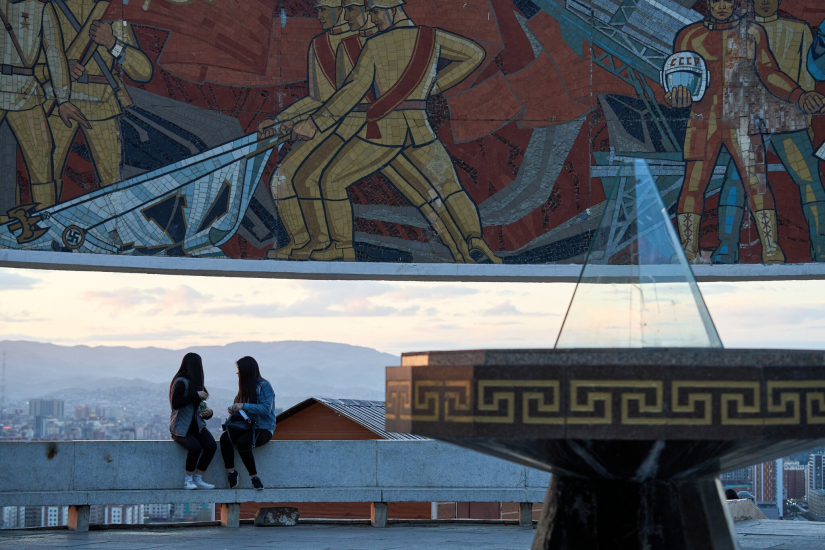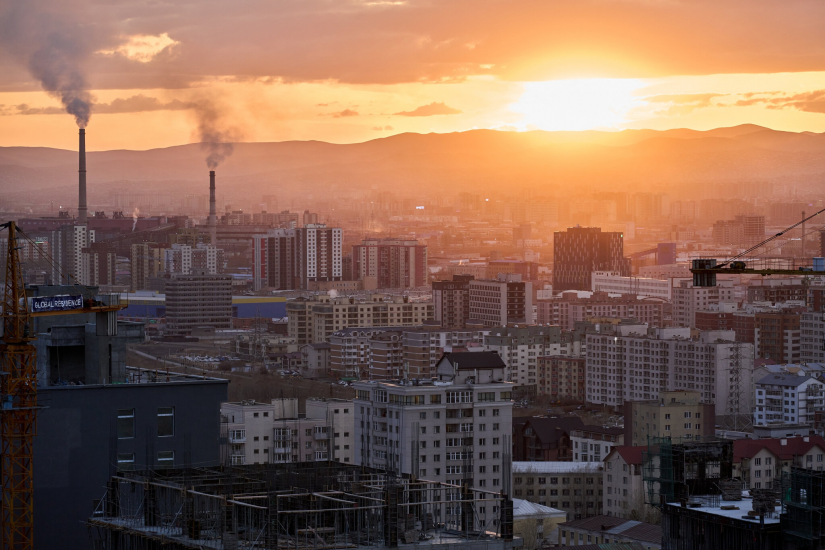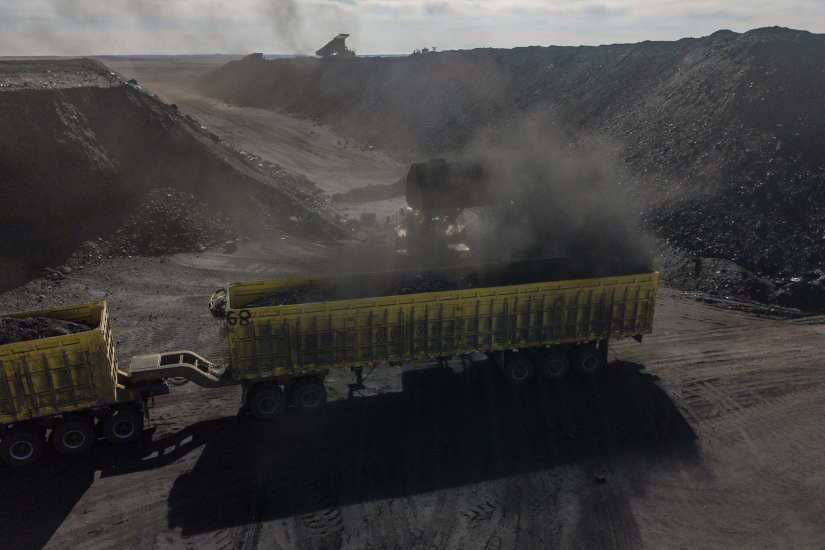Nationals and permanent residents of Mongolia and foreign nationals of the countries/regions stated in the official Visa Exemption List of Mongolia, which can be found here, are allowed to enter from 10 May 2021.
However, there are certain entry requirements as stated in the travel notice and all passengers are required to present a negative COVID-19 PCR test, which must be taken within 72 hours before departure of the first embarkation point.
Moreover, all persons arriving in Mongolia who have not been fully vaccinated against coronavirus infection will be quarantined at designated facilities for 7 days and PCR tests will be taken during the quarantine period. Information on the quarantine facilities can be found at www.tabinfo.mn and contact the listed hotels for reservations.
In the case of PCR test results are positive, the individuals will be transferred to a hospital for treatment. Persons arriving to Mongolia 14 days after receiving the full dose of coronavirus vaccines or those who were diagnosed earlier with a coronavirus infection and fully recovered are exempt from quarantine upon presenting proof of vaccination, antibody test result or other medical document.
News (2)
Countries are scrambling for vaccines. Mongolia has plenty
But during a pandemic, being a small nation sandwiched between two vaccine makers with global ambitions can have advantages.
At a time when most countries are scrambling for coronavirus vaccines, Mongolia now has enough to fully vaccinate its entire adult population, in large part thanks to deals with both China and Russia. Officials are so confident about the nation’s vaccine riches that they are promising citizens a “Covid-free summer.”
Mongolia’s success in procuring the vaccines in the span of a few months is a big victory for a low-income, developing nation. Many poor countries have been waiting in line for shots, hoping for the best. But Mongolia, using its status as a small geopolitical player between Russia and China, was able to snap up doses at a clip similar to that of much wealthier countries.
“It speaks to the Mongolian ability to play to the two great powers and maximize their benefits even while they are on this tightrope between these two countries,” said Theresa Fallon, director of the Center for Russia Europe Asia Studies in Brussels.
It is also a win for China and Russia, which have extensive resource interests in Mongolia and ambitions to appear to play a role in ending the pandemic, even when much of the world has expressed deep skepticism over their homegrown vaccines.
Mongolia is a buffer between eastern Russia, which is resource rich and mostly unpopulated, and China, which is crowded and hungry for resources. While Russia and China are often aligned on the global stage, they have a history of conflict and are wary of each others’ interests in Mongolia. Those suspicions can be seen in their vaccine diplomacy.
 In Ulaanbaatar, the capital, 97 percent of the adult population has received a first dose and more than half are fully vaccinated, according to government statistics.
In Ulaanbaatar, the capital, 97 percent of the adult population has received a first dose and more than half are fully vaccinated, according to government statistics.
“Putin is deeply concerned about what China is doing in their neighborhood,” Ms. Fallon said of Russia’s president, Vladimir V. Putin.
Russia has sold Mongolia one million doses of its Sputnik V vaccine. China has provided four million doses of vaccine — the final shipment of doses arrived this week. Mongolia’s most recent agreement with China’s Sinopharm Group, which is state-owned, was made days before the company received emergency authorization from the World Health Organization.
Mongolia was late to the global clamber for Covid-19 vaccines. For nearly a year officials boasted that there were no local cases. Then came an outbreak in November. Two months later, political crisis precipitated by the mishandling of the virus led to the sudden resignation of the prime minister. The prospect of continued coronavirus restrictions threatened to throw the country into further political turmoil.
The new prime minister, Oyun-Erdene Luvsannamsrai, pledged to restart the economy, which had suffered from lockdowns and border closures, particularly in the south, where Mongolian truck drivers ferry coal across the border to China’s steel mills. But these plans were complicated by surging cases, with the daily count going from hundreds a day to thousands.
“We were quite desperate,” said Bolormaa Enkhbat, an economic and development policy adviser to Mr. Luvsannamsrai.

The new prime minister pledged to restart the economy, which suffered from coronavirus lockdowns. Khasar Sandag for The New York Times
Mongolia approached China and Russia first, the foreign minister said, hoping longstanding economic ties with each country would help move it to the front of the line of countries seeking vaccines. Officials simultaneously explored diplomatic and private channels — putting in requests for donations from rich countries and the world’s biggest vaccine manufacturers.
They contacted price-gouging middlemen, international health organizations and vaccine alliances for poorer countries. One intermediary offered to sell Pfizer-BioNTech’s Covid vaccine for $120 a shot, nearly a quarter of the average monthly salary, Ms. Enkhbat said. Covax, the global vaccine-sharing alliance, which Mongolia signed onto in July 2020, promised doses in the fall or winter.
With each breakthrough from Russia, negotiations moved more quickly with China.
In early February, Mongolia approved Russia’s Sputnik V vaccine. Three days later, China’s Sinopharm Group received approval for its Vero Cell vaccine. Soon after, China donated 300,000 doses of its Sinopharm vaccine to Mongolia, citing a “profound traditional friendship” as motivation.
Opening up more of the border between China and Mongolia was also a part of the vaccine discussions, Chinese and Mongolian officials said in Chinese state media. Mongolia needs China to buy its coal — exports to the country make up nearly a quarter of Mongolia’s annual economic growth. The revenues helped to pad Mongolia’s budget by a quarter last year.
After a month of back and forth, the Mongolian government struck a deal in March with Russia’s Gamaleya Research Institute, too, for one million doses of the Sputnik vaccine. Days later, Mongolia finalized an agreement to buy 330,000 additional doses of the Sinopharm vaccine.
 Officials are so confident about Mongolia’s vaccine riches that they are promising citizens a “Covid-free summer.” Khasar Sandag for The New York Times
Officials are so confident about Mongolia’s vaccine riches that they are promising citizens a “Covid-free summer.” Khasar Sandag for The New York Times
When there was a last-minute hitch in the delivery of the purchased Chinese vaccines, a call on April 7 between China’s premier, Li Keqiang, and Mongolia’s prime minister, Mr. Luvsannamsrai, helped to smooth things over and reassure both sides. Up to that point, it was still unclear if Mongolia would be able to rely on China or if it would need to return to Russia for more vaccines.
“That’s what paved the way for the rest of the deal,” Ms. Enkhbat said about the phone call, Mr. Luvsannamsrai’s first with Mr. Li. “We laid out the situation and said that we are betting on Chinese vaccines at a time when the rest of the world fully isn’t.”
Mongolia has also secured commitments from AstraZeneca and Pfizer-BioNTech. So far it has received only 60,000 of the Sputnik vaccine because of manufacturing delays. But the Chinese vaccine will account for a majority of Covid-19 shots for Mongolia’s population.
“We are thankful to our partners, especially China, that they are providing us with vaccinations when they also need it for domestic use,” said Battsetseg Batmunkh, Mongolia’s foreign minister.
The Chinese and Russian embassies in Mongolia did not respond to requests for comment.
In Ulaanbaatar, Mongolia’s capital, 97 percent of the adult population has received a first dose and more than half are fully vaccinated, according to government statistics. Across the country, more than three quarters of Mongolians have already received one shot.
 Coal exports to China make up nearly a quarter of Mongolia’s annual economic growth. Gilles Sabrie for The New York Times
Coal exports to China make up nearly a quarter of Mongolia’s annual economic growth. Gilles Sabrie for The New York Times
The country’s vaccination effort still faces hurdles. Mongolia is economically dependent on China, and many of its citizens continue to fear its power and influence. When tensions have arisen in the past, China has shut its border and stopped purchasing Mongolian coal.
Mongolians have also expressed a preference for Russia’s Sputnik vaccine. To get the population to take the Sinopharm shot, the government has offered each citizen 50,000 tugriks — about $18 — to get fully vaccinated. The average monthly salary in 2020 was $460.
The terms and pricing of the Sinopharm and Sputnik deals were not made public, and Mongolia’s foreign ministry declined to comment on pricing. Representatives for the Gamaleya Research Institute and Sinopharm did not respond to requests for comment.
While some global health experts have questioned whether Sinopharm will be able to continue to deliver on its commitments overseas, it has delivered all of the doses Mongolia ordered. China has said it can make as many as five billion doses by the end of the year, though officials have warned that the country is struggling to make enough shots for its citizens.
There are also some signs that governments that have chosen the Sinopharm vaccine may have to roll out a third booster shot sooner than expected.
China, for its part, may be playing a long game, said Julian Dierkes, an associate professor at the University of British Columbia who specializes in Mongolian politics. Though many Mongolians may still not trust China, the Mongolian government will remember how it made its vaccines available at a critical moment.
“We could coin a phrase here: ‘The opportunity of smallness,’” he said.
Source: Alexandra Stevenson, The New York Times




I got my first outbreak when I was 19...the outbreak never went away. The same warts. Doctor said it was a spread from shaving but they never went away. I am 35 now and still have the same warts. I have tried a bunch of home remedies and nothing. Doctor was treating me for like a year but they never really went away, just got black and reduced in size but still never cleared up so I stopped doing it because it had been a year and got expensive especially for a 19 year old kid. I tried aldara but nothing. but thank god for using Dr Ajayi as a helper to me who got me cured from my herpes with his natural herbal medicine, May god continue to bless you and keep giving you the power to help others. You may need his assistance, visit his website https://ajayiherbalhome.weebly.com email him at ajayiherbalhome@gmail.com You can also call or write to him on whatsapp +2348154724883. Please share as you read
ReplyDelete